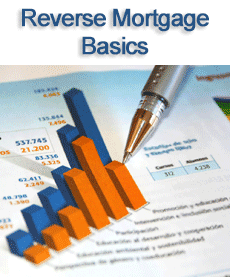 The HECM reverse mortgage is a means of using the cash that is tied up in the equity of your home. It is offered by HUD and the FHA. Before we go any further, it should be stressed that these are loans like most others and involve fees in setting them up and also monthly repayments that must be maintained. However, they are a reasonably good way to release equity without having to sell your home.
The HECM reverse mortgage is a means of using the cash that is tied up in the equity of your home. It is offered by HUD and the FHA. Before we go any further, it should be stressed that these are loans like most others and involve fees in setting them up and also monthly repayments that must be maintained. However, they are a reasonably good way to release equity without having to sell your home.
Qualifying For an HECM Reverse Mortgage
Correctly known as the Home Equity Conversion Mortgage, the HECM reverse mortgage is good alternative to the reverse equity mortgages offered by commercial lenders, and is very popular way to release equity due to their affordability. They are specifically for seniors, and their qualification includes:
• You must have equity on your home (owe less on your mortgage than its value.)
• You must be aged 62 years or more.
• Your home must be a singly family, or 2-4 unit home, condo or FHA-approved manufactured home.
• The property must be your principal residence.
• You must not be behind in payments on any federal debt.
• You must have undergone counseling on what a reverse mortgage entails.
How Much Equity Can you Release?
The amount of equity you can borrow depends on several factors:
• The age of the youngest borrower – must be at least 62 years.
• Current interest rate.
• $625,000, the sales price or the appraised value whichever is the least.
• Whether you choose an HECM Standard or Saver (see below.)
You will not be permitted to release all of your equity. How much will vary according to the individual. This is to ensure that once the property is sold or remortgaged, there is sufficient equity to leave a reasonable amount for your heirs.
You can repay the loan using one of 5 different payment plans. The best for you will depend on your personal circumstances, and will be explained on application. Fundamentally they involve:
• A straight repayment of the same amount each month for a fixed term, just like your mortgage,
• Tenure: a monthly repayment as long as one borrower lives
• A line of credit, or
• A combination of line of credit and each of fixed period or tenure payments.
HECM Saver
The HECM Saver is designed for those wishing to release a smaller amount of equity and pay less closing costs. The Mortgage Insurance Premium (MIP) is normally 2% of amount loaned. The MIP for a Saver is only 0.1%. With $200,000 equity released, this equates to an MIP of $4,000 for the regular HECM and $200 for the Saver HECM. However, the interest rate on the saver is higher.
The vast majority of equity over the last few years has involved one of the two HECM programs. You are not obliged to use the HECM reverse mortgage, and if you are unhappy with any of the conditions then you can apply for a private equity release with a private lender. However, it will cost more if you release equity privately and you should take some professional advice before making a decision.


About The Author: Karengustin
More posts by karengustin